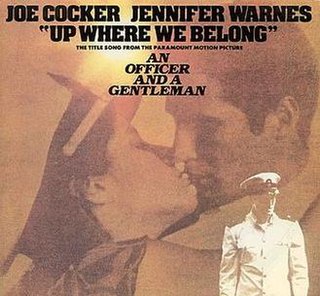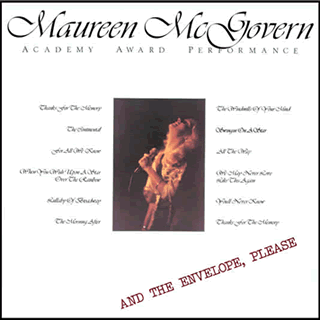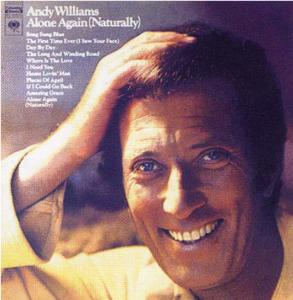
The Towering Inferno is a 1974 American disaster film directed by John Guillermin and produced by Irwin Allen, featuring an ensemble cast led by Paul Newman and Steve McQueen. It was adapted by Stirling Silliphant from the novels The Tower by Richard Martin Stern and The Glass Inferno by Thomas N. Scortia and Frank M. Robinson. In addition to McQueen and Newman, the cast includes William Holden, Faye Dunaway, Fred Astaire, Susan Blakely, Richard Chamberlain, O. J. Simpson, Robert Vaughn, Robert Wagner, Susan Flannery, Gregory Sierra, Dabney Coleman and Jennifer Jones in her final role.

"Me and Bobby McGee" is a song written by American singer-songwriter Kris Kristofferson and originally performed by Roger Miller. Fred Foster shares the writing credit, as Kristofferson wrote the song based on a suggestion from Foster. A posthumously released version by Janis Joplin topped the Billboard Hot 100 in 1971, making the song the second posthumously released No. 1 single in U.S. chart history after "(Sittin' On) The Dock of the Bay" by Otis Redding. Gordon Lightfoot released a version that reached number 1 on the Canadian country charts in 1970. Jerry Lee Lewis released a version that was number 1 on the country charts in December 1971/January 1972 as the "B" side of "Would You Take Another Chance on Me". Billboard ranked Joplin's version as the No. 11 song for 1971.

Maureen Therese McGovern is an American singer and Broadway actress, well known for her renditions of the songs "The Morning After" from the 1972 film The Poseidon Adventure; "We May Never Love Like This Again" from The Towering Inferno in 1974; and her No. 1 Billboard adult contemporary hit "Different Worlds", the theme song from the television series Angie.

"The Morning After" is a song written by Al Kasha and Joel Hirschhorn for the 1972 film The Poseidon Adventure, winning Best Original Song at the 45th Academy Awards. Following this success, Maureen McGovern recorded a single version that became a No. 1 hit in the US for two weeks during August 1973, with Gold record sales. Billboard ranked it as the No. 28 song for 1973.

The Morning After was Maureen McGovern's first studio album, released in July 1973.
Joel Hirschhorn was an American songwriter. He won the Academy Award for Best Original Song on two occasions. He also wrote songs for a number of musicians, including Elvis Presley and Roy Orbison. Hirschhorn was born in the Bronx and attended the High School of Performing Arts in Manhattan. After graduating, Hirschhorn became a regular performer on New York's nightclub circuit, both as a solo singer and as a member of the rock & roll band, The Highlighters.

"Up Where We Belong" is a song written by Jack Nitzsche, Buffy Sainte-Marie and Will Jennings that was recorded by Joe Cocker and Jennifer Warnes for the 1982 film An Officer and a Gentleman. Warnes was recommended to sing a song from the film because of her previous soundtrack successes, and she had the idea for the song to be a duet that she would perform with Cocker. Jennings selected various sections of the score by Nitzsche and Sainte-Marie in creating the structure of the song and added lyrics about the struggles of life and love and the obstacles that people attempt to dodge. It was released in July of that year to coincide with the release of the film.
Alfred Kasha was an American songwriter, whose songs include "The Morning After" from The Poseidon Adventure and "We May Never Love Like This Again" from The Towering Inferno.

"To Sir with Love" is the theme from James Clavell's 1967 film To Sir, with Love. The song was performed by British singer and actress Lulu, and written by Don Black and Mark London. Mickie Most produced the record, with Mike Leander arranging and conducting. The song peaked at the top of the Billboard Hot 100, and became the best-selling single of 1967 in the United States.

"I'll Never Fall in Love Again" is a popular song by composer Burt Bacharach and lyricist Hal David that was written for the 1968 musical Promises, Promises. Several recordings of the song were released in 1969; the most popular versions were by Dionne Warwick, who took it to number 6 on Billboard magazine's Hot 100 and spent three weeks topping the magazine's list of the most popular Easy Listening songs, and Bobbie Gentry, who topped the UK chart with her recording and also peaked at number 1 in Australia and Ireland, number 3 in South Africa and number 5 in Norway.
"Candle on the Water" is a torch song written by Al Kasha and Joel Hirschhorn for Walt Disney Pictures' 1977 live-action/animated film Pete's Dragon. Originally recorded by Helen Reddy, who plays Nora in the film, the song was nominated for the Academy Award for Best Original Song in 1977, though it lost to "You Light Up My Life".

Academy Award Performance: And the Envelope, Please is Maureen McGovern's third studio album, released in 1975. It was her last album for 20th Century Records.

"With You I'm Born Again" is a 1979 duet written by Carol Connors and David Shire that originated on the soundtrack of the 1979 motion picture Fast Break. It was performed by Motown recording artists Billy Preston and Syreeta Wright and became an international hit for the duo, reaching number four on the Billboard Hot 100 and number two on the UK singles chart.
"Darlin'" is a song written in 1970 by English sax player Oscar Stewart Blandamer. It was first released under the title "Darling" by the British country band Poacher in 1978. It was later a chart hit for Frankie Miller and David Rogers. The track was subsequently recorded by numerous artists including Tom Jones, Barbara Mandrell, Smokie and Johnny Reid.

"We'll Never Have to Say Goodbye Again" is a song by Jeffrey Comanor from the album A Rumor in His Own Time, which debuted in September 1976. Written by Comanor, the song describes a couple who spend a night together, one which the narrator wishes would "never end". Both the song, which Epic Records released as a single, and album failed to chart.

Alone Again (Naturally) is the thirtieth studio album by American pop singer Andy Williams, released in September 1972 by Columbia Records and mainly consisting of songs originated by other artists. For its release in the UK, the album was titled The First Time Ever (I Saw Your Face), and three of the songs were replaced with the 7-inch single tracks "Who Was It?" and "Marmalade, Molasses & Honey" and a recording that was not released on vinyl in the U.S., "If You're Gonna Break Another Heart".

You've Got a Friend is an album by American pop singer Johnny Mathis that was released on August 11, 1971, by Columbia Records. The phrase "Today's Great Hits" can be found above the title on both sides of the record jacket as well as both sides of the LP label as if to emphasize that this is essentially an album covering songs that were recently on the charts. This was a common practice of many vocalists of the period, so much so in fact that fellow Columbia artist Andy Williams also released an album titled You've Got a Friend in August 1971 on which he coincidentally covers seven of the 11 tracks that Mathis recorded for this album.

When Will I See You Again is an album by American pop singer Johnny Mathis that was released in March 1975 by Columbia Records and was again predominantly composed of covers of recent hit songs by other artists.

The Best Days of My Life is an album by American pop singer Johnny Mathis, released on January 29, 1979, by Columbia Records. He scaled back considerably on his more than decade-long practice of recording recent hit songs by other artists. He did, however, cover two standards: "As Time Goes By" and "Begin the Beguine", the latter of which is given a disco arrangement.

Long Hard Climb is the fourth studio album by Australian-American pop singer Helen Reddy, released on July 23, 1973, by Capitol Records and, aside from its primary focus on Top 40-friendly material, had her trying out New Orleans jazz and the English-language version of a recent Charles Aznavour standard. It debuted on Billboard's Top LP's & Tapes chart in the issue dated August 11, 1973, and reached number eight during its 43 weeks there, and in Canada's RPM magazine it peaked at number 14. On September 19 of that year, the Recording Industry Association of America awarded the album with Gold certification for sales of 500,000 copies in the United States. On July 22, 2003, it was released for the first time on compact disc as one of two albums on one CD, the other album being her 1972 release I Am Woman.
















